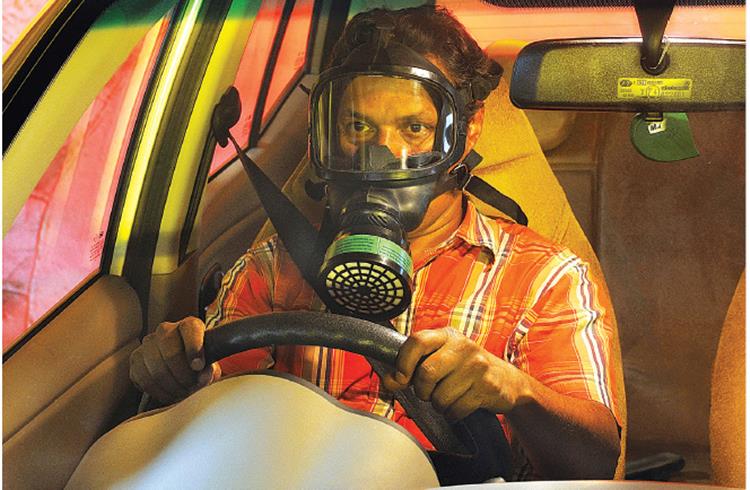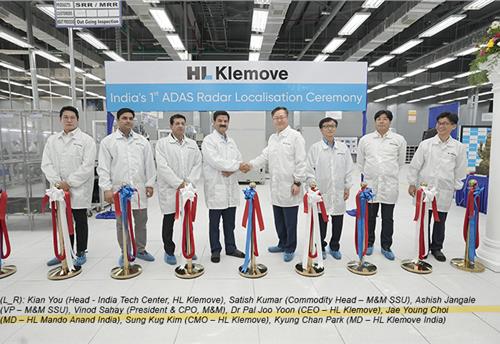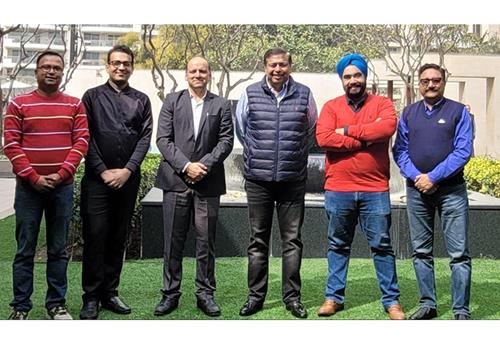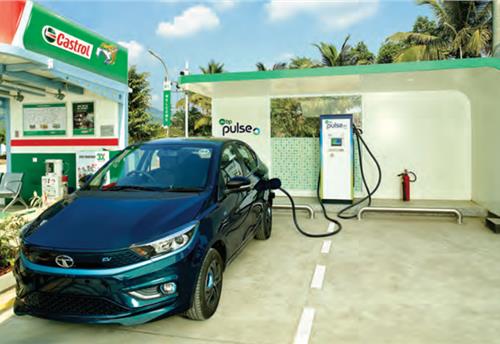Clearing the air on vehicular emissions in India
A new report from the International Council on Clean Transportation says rapid adoption of ultra-low sulphur fuels and BS VI vehicle emission standards would dramatically improve India’s air quality to the benefit of public health. Amit Pandayhas the details.
The International Council on Clean Transportation (ICCT), an independent, non-profit research organisation which works in the area of environmental concerns mainly pertaining to transportation emissions, has recently released its recommendations for the upcoming Indian Auto Fuel Policy, which is slated to be announced soon under the chairmanship of SaumitraChaudhuri , member, Planning Commission.
The new report underlines an urgent need to take control of the vehicular pollution that is causing nearly 40,000 premature deaths every year in India, despite the implementation of BS III and BS IV emission standards.
 |
The report stresses on an immediate need to not only chalk out but also strictly implement new emission laws to match the best practices demonstrated by other leading vehicle markets. It highlights that India is already falling behind the international practices as our air-pollution worsens and our dependency on oil continues to increase and that the upcoming fuel policy is an opportunity to strictly implement emission laws countrywide.
According to the report, “at stake is the premature death of tens of thousands annually due to deteriorating air quality, and thousands of crores in economic benefits derived from a healthier, more productive population.”
The report is based on ICCT’s findings through a comprehensive survey of past, present and potential future vehicle emission control programs, which sets India’s policy options in the context of international emission control regimes.
“Our study suggests strongly not just that India can afford ambitious policies on clean vehicles and fuels, but that it can ill afford not to pursue such policies. The costs of delay are very high. We’re confident the Auto Fuel Policy committee understands the urgent need to chart a course now that will put India on par with international standards by 2020,” said AnupBandivadekar, program director, ICCT and a co-author of this report.
The last emission standards were defined and implemented by the auto fuel policy which was adopted in 2003 (under the leadership of Dr R A Mashelkar) and has successfully managed to reduce the per vehicle emissions to some extent. However, according to the ICCT report, those gains are fast eroding as the particulate emissions (PMs) from vehicles, which declined since 2003 will return to 2003 levels within five years if stricter control is not mandated. To add to that, India’s on-road vehicle population has nearly tripled reaching 130 million in 2013 in the last 10 years.
ICCT’s new report focusses on two core aspects which overshadow all other challenges – fuel sulphur content limits and vehicle emission standards. While diesel sold in India contains up to 350 parts per million (ppm) of sulphur, petrol contains upto 150 ppm, which not only makes for higher particulate emissions but also prevents the application of advanced after-treatment devices (fully effective only for low sulphur fuel). Secondly, the vehicle emission standards (BS IV and BS III) permit much higher PM and NOx emissions than current European Union regulations.
“India needs to limit fuel sulphur content to 10 parts per million, and implement Bharat VI emissions standards nationwide well before the end of this decade. That’s the most important conclusion to draw from this analysis. We need to close the gap on clean vehicles and fuels between India and Europe,” said the ICCT’s Gaurav Bansal who has also co-authored the report.
 |
The past: 2000-2010
The report analyses India’s vehicular pollution and emission scenario in three phases. The past includes the last decade (2000-2010) which has managed to progressively achieve emission reduction, thanks to the road map laid down by the auto fuel policy of 2003. While in 2010, BS IV grade fuel standards for four-wheeled vehicles was implemented in 13 major cities and BS III in the rest of the country, as of January 2013, the BS IV fuel mandate has been extended to 10 more cities, most of them situated along with fuel supply routes.
According to the report, “Taking into account the premature deaths avoided as a result of lower PM2.5 (fine particulate matter) emissions alone in the 337 largest Indian cities, this first phase of emission reductions saved almost 6,500 lives in 2010. The cumulative economic benefits stemming from averting premature deaths in the 2000-2010 period stands at about Rs 150,000 crore, offering a payback for the investments made during this period.”
Present: 2010-2012
 |
Stressing on how India is falling behind other similar economies such as China, Brazil, Mexico and others, the report underlines the loopholes of the dual fuel policy. Sulphur limits in the fuel is higher elsewhere in India as compared with the BS IV cities (350 ppm v/s 50 ppm for diesel), the BS IV-specific vehicles fail to comply with the norms when they refuel in areas where lower grade fuel is sold. Moreover, owing to the high sulphur content in the retailed fuel, after-treatment emission control devices such as selective catalytic reduction (SCR) and diesel particulate filters (DPFs) might fail or operate below optimum performance.
Continued growth in vehicle population on the roads is also expected to negate the gains of the past decade in the absence of further policy action.
Future: 2013-2035
While the committee’s work is ongoing, there have been no significant plans to tighten vehicular emission and fuel quality standards apart from expanding the supply of 50ppm sulphur fuel to 60-70 cities by 2015. In order to evaluate the future of vehicle emissions, the report analyses four approaches – Business As Usual (BAU), Continued Dual Standards Program, National Leapfrog Program and World Class Program.
 |
The report points out that under the World Class Program, which assumes the most aggressive role of the government by implementing BS V/VI norms across the country, the net emissions of NOx and PMs could reduce by upto 86 percent as compared to a scenario where no further policy action is taken. Meanwhile, the continued Dual Standards Program (current approach) does not stand to benefit in the longer run (due to expected explosion in vehicle population) as compared to the Business As Usual approach. The National Leapfrog Program, which calls for a jump to BS VI standards by 2017, provides substantial benefits.
The report also outlines a sense of premature mortality through its analysis of three above-mentioned approaches. According to an ICCT-World Health Organization (WHO) health impact model, more than 56,000 premature deaths can be avoided in India under the World Class Program in the year 2035 alone.
All in all, the ICCT study is yet another reminder that the government needs to pull up its socks, update the oil refineries as well as rapidly expand the supply network to effectively implement cleaner fuel strategy across the country.
RELATED ARTICLES
Branded content: HL Klemove inaugurates first Local ADAS Radar Manufacturing Unit in India, marks a significant achievement in “Make in India” initiative
The inauguration ceremony was held in the presence of Vinod Sahay, President and CPO of Mahindra & Mahindra Ltd. and Dr....
BluWheelz to 'Green Up' logistics sector
With their EVs-as-a-service solution, the startup is playing it smart with costs and looking to electrify the entire seg...
BRANDED CONTENT: Spearheading the EV revolution in India
Jio-bp is a joint venture between Reliance Industries and BP PLC where both entities have married international expertis...





 By Autocar Pro News Desk
By Autocar Pro News Desk
 19 Nov 2013
19 Nov 2013
 2859 Views
2859 Views









